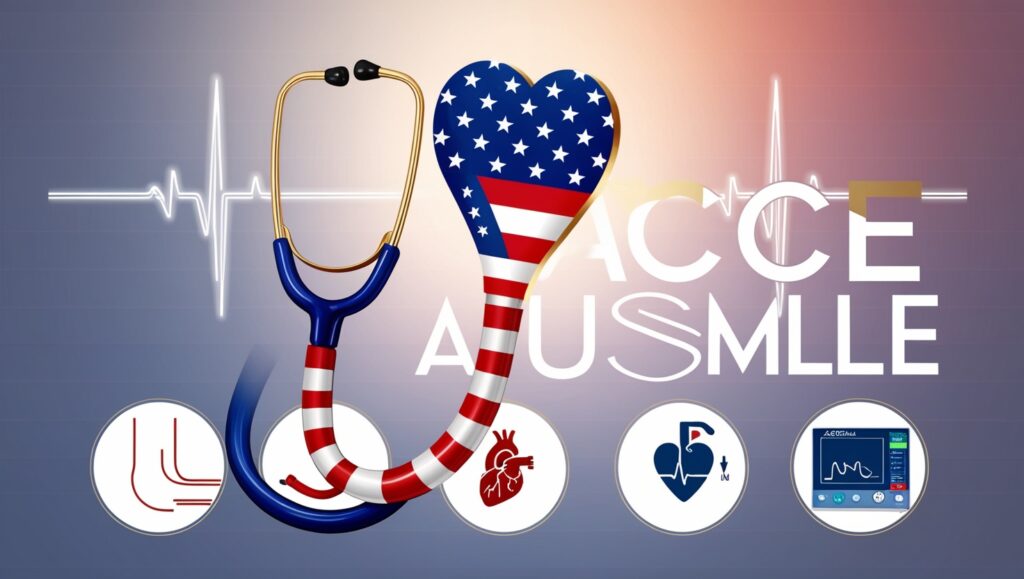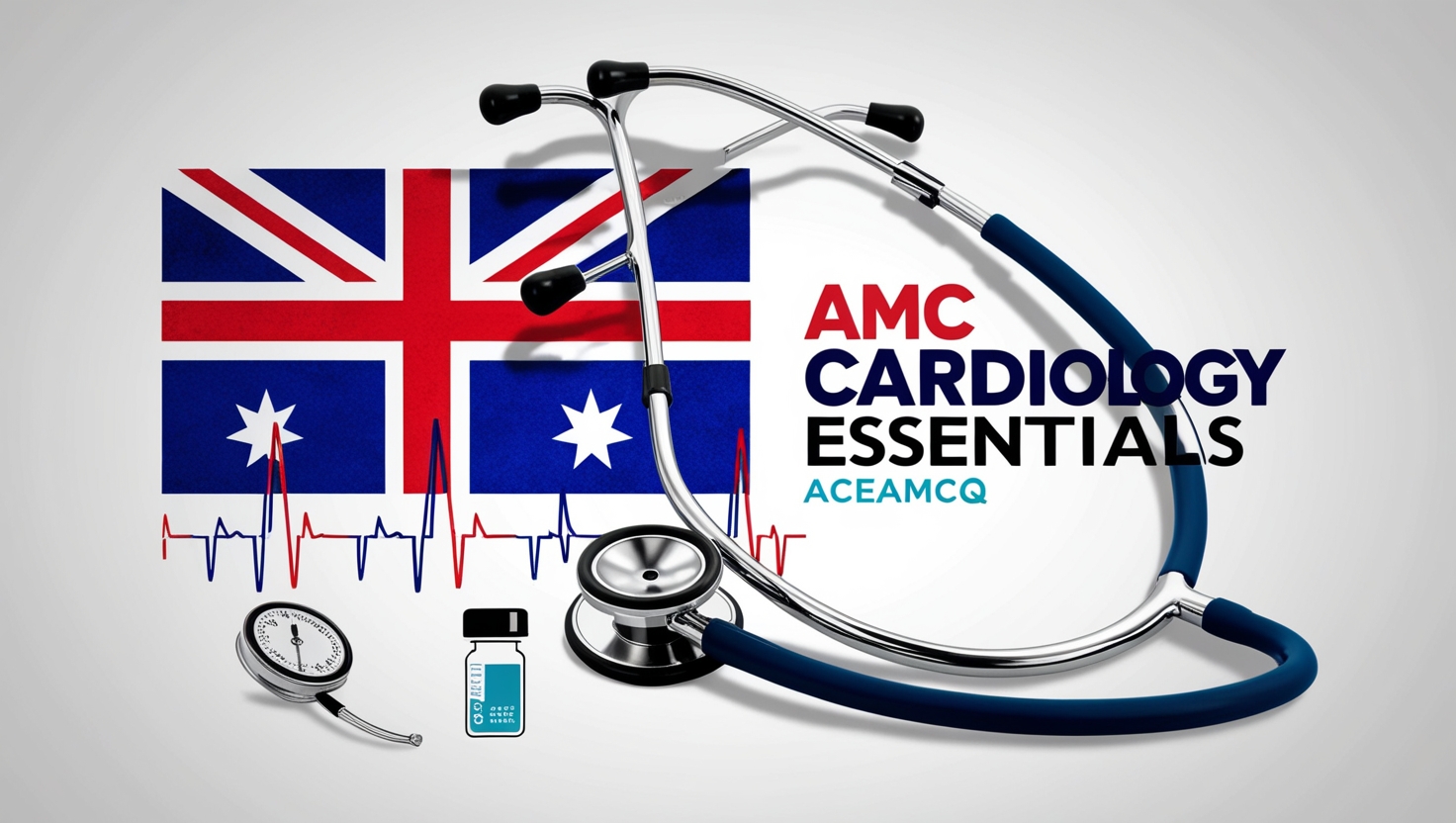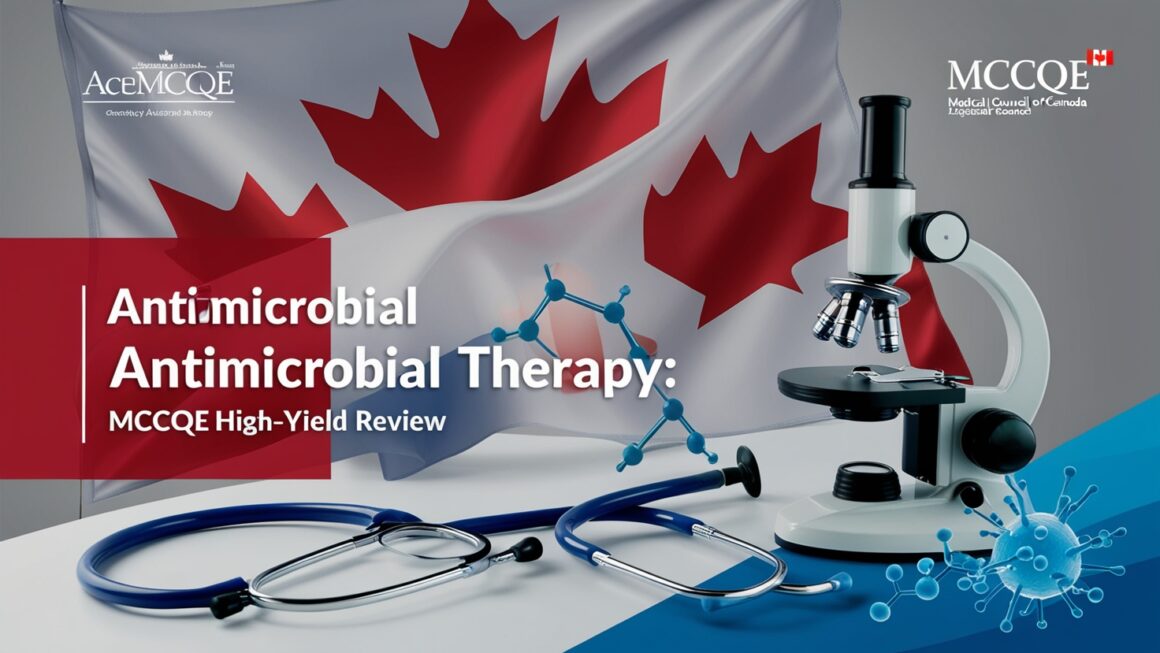Cardiology is a crucial subject for the Australian Medical Council (AMC) exams, particularly AMC Part 1. Given its high prevalence in clinical practice and the complexity of cardiovascular diseases, mastering key cardiology concepts is essential for success. This guide focuses on high-yield cardiology topics and clinical cases relevant to the AMC exam, providing an in-depth understanding of cardiovascular pathophysiology, diagnosis, and management.

1. Understanding Cardiovascular Physiology
A strong foundation in cardiovascular physiology is essential for AMC candidates. Key concepts include:
- Cardiac Cycle: Understanding systole and diastole, pressure changes, and heart sounds.
- Electrophysiology: Mechanisms of cardiac conduction, including action potentials, SA and AV nodes, and Purkinje fibers.
- Hemodynamics: Concepts such as preload, afterload, contractility, and cardiac output regulation.
2. Common Cardiovascular Diseases in AMC Exams
a) Coronary Artery Disease (CAD)
- Pathophysiology: Atherosclerosis, plaque rupture, and thrombosis.
- Clinical Presentation: Stable angina, unstable angina, myocardial infarction (MI).
- Diagnosis: ECG changes, troponin levels, stress testing, and coronary angiography.
- Management: Lifestyle modifications, pharmacotherapy (aspirin, statins, beta-blockers), and revascularization (PCI, CABG).
b) Hypertension
- Types: Primary (essential) hypertension and secondary hypertension.
- Risk Factors: Age, obesity, smoking, genetics.
- Management: Lifestyle interventions, antihypertensive medications (ACE inhibitors, ARBs, calcium channel blockers, diuretics).
c) Heart Failure
- Types: Heart failure with reduced ejection fraction (HFrEF) vs. heart failure with preserved ejection fraction (HFpEF).
- Clinical Signs: Dyspnea, orthopnea, peripheral edema, jugular venous distension.
- Treatment: Loop diuretics, beta-blockers, ACE inhibitors, and aldosterone antagonists.
d) Valvular Heart Diseases
- Aortic Stenosis: Etiology (degenerative, rheumatic), systolic murmur, management (TAVI, surgical valve replacement).
- Mitral Regurgitation: Causes (mitral valve prolapse, ischemic heart disease), holosystolic murmur, medical vs. surgical treatment.
3. Electrocardiogram (ECG) Interpretation
ECG is a crucial diagnostic tool in cardiology. Key patterns to recognize include:
- ST-Elevation Myocardial Infarction (STEMI): ST elevations in contiguous leads, reciprocal changes.
- Atrial Fibrillation: Irregularly irregular rhythm, absence of P waves.
- Bundle Branch Blocks: Right vs. left bundle branch block criteria.
4. High-Yield Clinical Cases for AMC
Case 1: Acute Myocardial Infarction
Presentation: A 58-year-old male with chest pain radiating to the left arm, diaphoresis, and nausea. Findings: ECG shows ST elevations in leads II, III, aVF (inferior STEMI). Management: Immediate aspirin, nitrates, heparin, and primary PCI.
Case 2: Heart Failure Exacerbation
Presentation: A 70-year-old female with worsening dyspnea, pedal edema, and fatigue. Findings: Elevated BNP, pulmonary congestion on CXR. Management: IV diuretics, oxygen therapy, optimization of heart failure medications.
Case 3: Atrial Fibrillation with Rapid Ventricular Response
Presentation: A 65-year-old with palpitations, dizziness, and shortness of breath. Findings: Irregularly irregular pulse, tachycardia on ECG. Management: Rate control (beta-blockers, diltiazem), rhythm control (cardioversion), and anticoagulation (CHA2DS2-VASc score assessment).
5. Pharmacology in Cardiology
Understanding cardiovascular drugs is essential for the AMC exam. Key drug classes include:
- Antihypertensives: ACE inhibitors, beta-blockers, calcium channel blockers.
- Anticoagulants & Antiplatelets: Warfarin, NOACs, aspirin, clopidogrel.
- Lipid-lowering Agents: Statins, fibrates, ezetimibe.
- Diuretics: Loop diuretics (furosemide), thiazides (hydrochlorothiazide), potassium-sparing diuretics (spironolactone).
6. Preventive Cardiology & Lifestyle Modifications
Preventing cardiovascular diseases through lifestyle changes is a key component of patient management.
- Diet: Low sodium, DASH diet, Mediterranean diet.
- Exercise: Regular physical activity (150 minutes per week).
- Smoking Cessation: Counseling, nicotine replacement therapy.
- Diabetes & Lipid Control: Statins, metformin, SGLT2 inhibitors.
7. Key Takeaways for AMC Preparation
- Focus on high-yield diseases like CAD, hypertension, heart failure, and arrhythmias.
- Master ECG interpretation, as it is frequently tested.
- Understand the pharmacological management of common cardiovascular conditions.
- Practice clinical case scenarios to apply theoretical knowledge effectively.
Conclusion
Cardiology is one of the most heavily tested subjects in the AMC exam. By mastering high-yield topics, ECG interpretation, and clinical case management, candidates can significantly improve their exam performance. Focus on understanding core concepts, applying them to case-based scenarios, and staying updated with guidelines to excel in the AMC Part 1 exam. Read more blog…



13 thoughts on “Cardiology Essentials for AMC: High-Yield Topics & Clinical Cases”
Comments are closed.